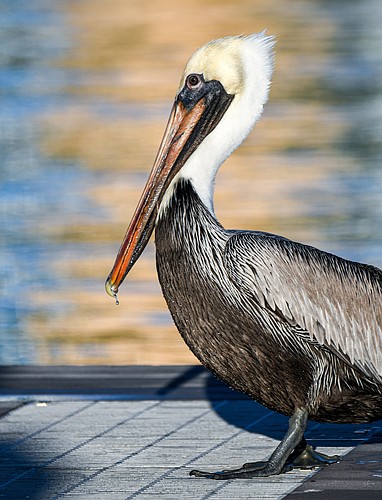- January 31, 2026
-
-
Loading

Loading

It's hard to imagine our beautiful beaches and bay without the ubiquitous brown pelicans. Entirely brown before they reach maturity, adults are brownish-gray, with bright yellow and white heads. To feed, they impressively plunge-dive into schools of small fish, scooping up to 3 gallons of water and fish. They contract the muscles in their pouch to slowly squeeze out the water, with their beak mostly closed to trap their catch. A quick toss back of their head, and they swallow the fish whole.
Brown pelicans faced extinction multiple times in the 20th century, first when hunted for their feathers (used to decorate hats and jackets) and later when DDT, used to control mosquitoes, had the unintentional effect of thinning their eggshells, resulting in low rates of nest success. They recovered with the protection of the Migratory Bird Treaty Act and the banning of DDT in 1972.
Today, brown pelicans are vulnerable to human impact through pollution and plastic garbage, which they can mistake for food. And, as human anglers are often in close proximity, vying for fish, brown pelicans have a high risk of entanglement in fishing gear. Moreover, discarded filleted carcasses and fish scraps larger than their normal diet can cause critical injuries by tearing brown pelicans' delicate pouch or lodging in their throat.
We can help protect our brown pelicans by keeping plastics and fishing gear (hooks, weights and fishing line) out of our environment and waterways. And by not feeding them unused bait fish and scraps we can discourage them from congregating near fishing piers and human anglers, where they are most at risk.